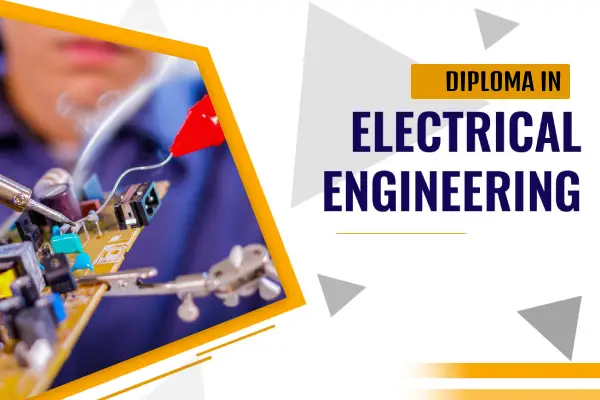
The Diploma in Electrical & Electronics Engineering is a three-year program designed to provide students with the essential skills and knowledge needed to excel as Electrical Engineers in the industry.
To pursue a Diploma in Electrical and Electronics Engineering in Kenya, the following requirements and details are generally applicable:
Entry Requirements
The minimum entry requirement is typically a KCSE (Kenya Certificate of Secondary Education) mean grade of C- (Minus) or its equivalent.
For some programs, a KCSE mean grade of C (Plain) with at least a C (Plain) in Mathematics, Physics, and either Chemistry or Physical Science, and English or Kiswahili may be required.
Applicants must also have passed Mathematics and Physics or Physical Science at the KCSE level.
Alternative Qualifications
- A KNEC Certificate in a related program or its equivalent can also be accepted.
- Other relevant qualifications recognized by the university senate or the Kenya National Examinations Council (KNEC) may also be considered.
Duration of the Program
The diploma program typically lasts for three academic years, often structured into six semesters.
Industrial Attachment
Students are usually required to undergo an industrial attachment, which can range from a few months to a specified number of hours (e.g., 480 hours).
Assessment and Certification
The program is assessed both internally and externally, with certification issued by KNEC or TVET/CDACC upon successful completion of all units.
Key Skills and Subjects
The program covers a wide range of subjects including electrical installation technology, engineering mathematics, analogue and digital electronics, electrical engineering principles, renewable energy, and control systems.
Key skills required include critical thinking, technological knowledge, active learning, interpersonal skills, organizational skills, complex problem-solving skills, and innovative thinking.
Career Opportunities
After completing a diploma in Electrical and Electronics Engineering in Kenya, several career opportunities and paths are available across various industries. Here are some of the key career options and employers:
Career Roles
- Controls Engineer: Design, develop, and control electrical control systems, equipment, and machinery.
- Project Engineer: Build, develop, and control the electrical systems used in specific projects.
- Test Engineer: Involved in testing and evaluating electrical systems and equipment.
- Design Engineer: Responsible for designing electrical equipment and systems.
- Electrical Engineer: General role involving the installation, maintenance, and repair of electrical systems.
- Power Distribution Designer: Design and maintain power distribution systems, liaising with vendors and contractors.
- Aerospace Electrical Engineer: Work on electrical systems in the aerospace industry, including on-board computers and steering systems.
- Electrical Control Engineer: Design and develop electrical control systems and provide technical support.
- Chief Electrical Engineer: Act as a project manager for electrical or construction-related projects, including designing equipment and ensuring proper installation.
Industries and Employers
- Public Sector: Major employers include Kenya Power and Lighting Company, Kengen, Ketraco, and other state-owned enterprises.
- Private Sector: Companies such as Jindal Steel and Power Limited, Hindustan Motors, L&T Construction, and various manufacturing, telecommunications, and IT firms hire electrical engineering diploma holders.
- Consultancy Firms: Electrical consultancy firms offer roles that provide in-depth exposure to the application of electrical engineering principles.
- Telecommunications: Companies like Safaricom hire electrical engineers for various roles.
Other Opportunities
- Self-Employment: Graduates can start their own businesses, leveraging their skills and knowledge in electrical engineering.
- International Opportunities: There are job opportunities available abroad, particularly in countries with high demand for skilled electrical engineers.
Skills and Specializations
The program equips students with skills in electrical installation, renewable energy, measurement and control systems, and electrical instrumentation. Specializations can include power, control, electronics, microelectronics, signal processing, communication, and instrumentation.
Additional Career Paths
- Project Management: Graduates can transition into project management roles, overseeing electrical engineering projects.
- Research and Development: Opportunities exist in R&D within various industries, including electronics, automotive, and energy.
- Entrepreneurship: Many electrical engineers become successful entrepreneurs, leveraging their technical skills to start innovative businesses.
Overall, a diploma in Electrical and Electronics Engineering in Kenya opens up a wide range of career opportunities across multiple sectors, allowing graduates to contribute to various aspects of electrical engineering and related fields.










